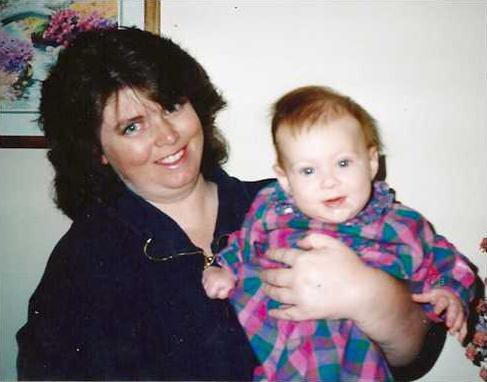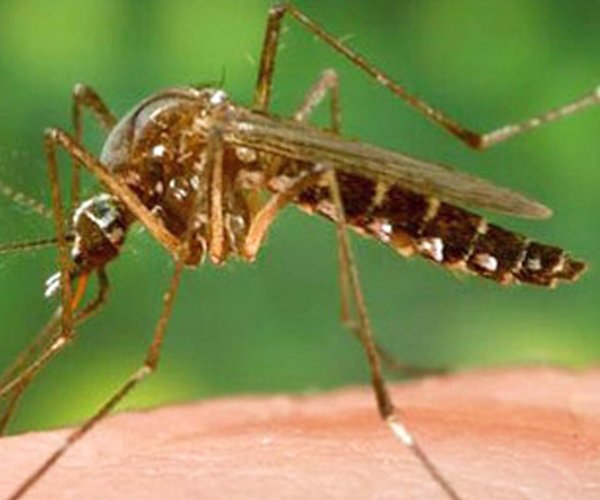Most people have no trouble recalling a fond memory of the person they grew up calling “mom.” For Jenna Zaleski, that memory is of her hard-working single mother making the time to take her and her sister on day trips to the coast.
“No matter how tight money was, we could always drive down to Monterey for a day trip,” said Zaleski.
The memories of those visits to the coast have a greater significance for the Modesto Junior College student who will be honoring her mother posthumously this Mother’s Day weekend.
Jenna’s mother, Kathleen Zaleski died in 2014 from a blood clot while recovering from a broken leg. The longtime Newman preschool teacher and mother of two had just completed her bachelor’s degree, was working on getting her teaching credential and started a new job when she fell on her kitchen floor, breaking her leg.
Jenna was an 18-year-old freshman at San Jose State when her mother died. Soon after she moved back to the Newman area and starting living with the couple who became her sister’s adopted parents and attending MJC.
Jenna said it is easier now to talk about the loss of her mom, mainly due to the time she has spent at Jessica’s House.
While families prepare to honor their matriarchs this weekend, for some Mother’s Day is a reminder of loss, as well as joy, according to Erin Nelson, executive director of grief support program Jessica’s House.
Jessica’s House offers ongoing free support for children, teens, young adults and adults who have lost loved ones. For children and teens, the support programs bring them together with others who have also experienced the death of their mom.
“Many times, children and teens are in everyday settings such as school or sports where they don’t have the opportunity to talk about the death of their parent,” said Nelson. “If they do talk about what happened there are times children and teens report being bullied or hearing advice or words that are intended to be helpful and comforting, but they feel hurtful.
“I remember talking once with a child whose parent recently died and they said that their friend from school told them they knew exactly how they felt because their cat died. The young girl really wanted her friend to know that losing a parent is totally different than losing a pet. This is why it’s supportive when those who experience the death of their mom have a place like Jessica’s House where they can express what they’re going through with others with a similar loss. During groups, we do activities that help kids memorialize the person who died through art, music and play. This helps them express their feelings surrounding the death.”
For Jenna, having others her age to talk to who have also lost a parent is helpful.
“It’s really hard to talk about something with people who haven’t had a loss. Being here makes it easy to talk to people,” she said. “They also remind you that everything goes at its own pace, not only grieving.”
Mother’s Day can be hard for all ages, said Nelson, not just children or young adults who have lost their mom.
“Our monthly grandparent loss groups also follow our model of supporting the whole family so that adult caregivers who have experienced the death of their mom have a place to share their pain. The absence of a mom is tough, even for adults. When a person has a nurturing mom, it gives them a lot of strength and you never stop craving that kind of love,” said Nelson.
Nelson also has advice for those who want to offer comfort to friends or family members grieving a loss this Mother’s Day.
“Acknowledging that Mother’s Day can be a hard day for those who have experienced the loss of their mom is a great place to start. When you make a conscious effort to remember dates it lets your friend or family member know that you’re thinking about them. It’s important that friends and family be present to the wide spectrum of emotions and behaviors that come with grief. This could include tears, anger, regret or forgotten obligations,” she said.
“They may even have paradoxical emotions such a sadness that the person has died, but relief that they’re no longer suffering. Grief naturally turns us inward so we can heal and survive, so it may seem that the person has changed – and they have, but they won’t always feel the way they do right now. They need you to be steady presence as they integrate their strong feelings as they adjust.”
Nelson also suggests:
If you knew the person who died, share a story or memory and let them know the impact that person had on your life. Consider a donation or dedication in the person’s name for Mother’s Day. Take action by dropping off a meal, mowing their lawn or offering to take their child to their activities. Keep the invites coming by asking them to lunch or to the movies or to the activities you once enjoyed together. Let them know they can always say no, and you won’t stop asking. It lets them see that you’re not scared off by their grief and it also holds hope that you know they’re going to get through this. It also shows them how much you care and that you’re here now and always.For more information about the grief support offered at Jessica’s House, visit.jessicashouse.org or call 209-250-5395.





